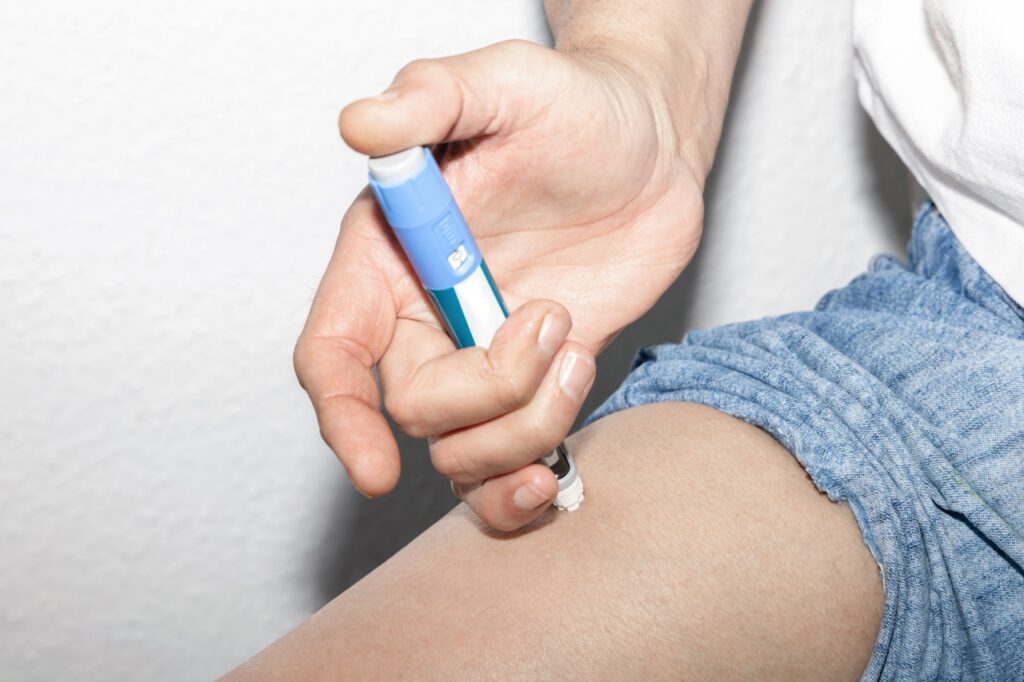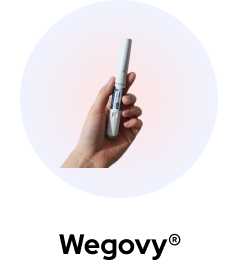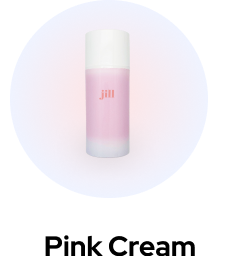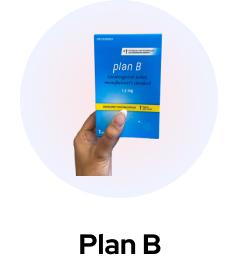Ozempic has a number of known contraindications with other drugs and supplements, but what about if you’re addicted to your hot pour-over with cream, iced latte with flavored syrups, or French press? Is your daily mocha, macchiato, americano, or any other coffee safe to drink if you’re taking Ozempic?
In this article we’ll cover:
- Whether it’s okay to drink coffee while you’re taking Ozempic
- What happens when you drink coffee while taking Ozempic
- The risks associated with this combination
- Our top tips for portion size and dosage guidance
- Frequently asked questions.
Let’s dive in!
Can You Drink Coffee on Ozempic?
coffee then yes, you’re able to do so. There is no direct interaction between Ozempic and coffee that has been discovered, and there will likely be no immediate health risks by doing this.
However, whether drip or nitro coffee, or other caffeinated drinks, such as green tea, can potentially have some effects on your body that don’t mesh well with Ozempic, such as an increased heart rate and high blood sugar levels. There is also a chance that coffee beverages will negatively impact your absorption of Ozempic, lessening the medications effectiveness.
How Ozempic and Coffee Influence Blood Sugar Levels
Ozempic is primarily used to lower blood sugar levels when they’re too high. Semaglutide, the active ingredient in Ozempic, affects proteins in the pancreas, which produces insulin. Ozempic is therefore able to increase the production of insulin in the presence of high blood sugar, which in turn lowers your A1C.
Research has shown that coffee, on the other hand, can raise blood sugar levels in those with type-2 diabetes.
One study observed the reaction of patients with type-2 diabetes who were administered two 250 mg caffeine pills each day — the equivalent of drinking around 4 cups of coffee. It was observed that their blood sugar was 8% higher than the days on which they did not have caffeine.
With Ozempic working hard to lower your blood sugar, and coffee raising it, it’s easy to see how these two substances may be at odds with each other!
Potential Weight Loss Benefits of Ozempic and Coffee
There are several ways Ozempic is able to aid with weight management. With a GLP-1 receptor agonist as its active ingredient, Ozempic can activate a number of pathways that assist with significant weight loss. Some examples include appetite suppression, delayed emptying of the stomach, and increased satiety.
Coffee is also a substance that has been known to help with body weight management. A standard black coffee is very low in calories and has also been thought to improve your metabolism. Along with this, coffee can also reduce your appetite, which in turn can combat mindless snacking and overeating.
The Role of Ozempic and Coffee in Reducing Heart Disease Risk
Ozempic has been approved as a drug that significantly reduces the risk of major cardiovascular disease. There has been evidence to suggest that patients with type-2 diabetes can benefit from Ozempic when it comes to improving cardiovascular health and reducing the risk of heart disease.
A two-year long trial in 2016 indicated that the active ingredient in Ozempic, semaglutide, was able to “significantly reduce the risk of the occurrence of a 3-component MACE endpoint consisting of cardiovascular death, non-fatal heart attack, or non-fatal stroke.”
In terms of the effects that coffee can have when it comes to reducing the risk of heart disease, an observational study found that people who consumed around 1–2 cups of coffee per day ended up having a lower risk of cardiovascular disease compared to those who did not consume any coffee.
This may seem surprising, but coffee beans have also been known to block receptors involved with abnormal heart rhythms.
A Look at the Cognitive Benefits of Ozempic and Coffee
Ozempic and other drugs with semaglutide as an active ingredient are currently being researched in relation to their cognitive benefits.
It is hypothesized that Ozempic and others can prevent cognitive decline due to the way they alter the metabolic system and lower inflammation in the body. This is thought to, in turn, be able to protect brain health.
As for coffee, research has shown that it can improve both long-term and short-term memory. The neuroprotective benefits in this instance have been found to come from the bioactive compounds in the grounds.
What Happens When You Combine Ozempic and Coffee?
There is no direct interaction between coffee and Ozempic and there will likely be no immediate or direct reaction from combining the two. There are, however, some small changes you may notice when drinking coffee again for the first time after starting Ozempic.
While everybody’s reaction will differ, some of these changes may include:
- A change in taste
- Nausea upon consuming coffee
- Increased body mass loss
- Changes in blood sugar
- An increased feeling of fullness after drinking coffee.
You may even find that while you enjoyed coffee before starting Ozempic — whether an espresso, cappuccino, or cold brew — it is no longer something that you enjoy. This is perfectly normal.
What are the Risks of Combining Ozempic and Coffee?
There are some risks that come along with combining Ozempic and coffee that you should keep in mind.
Some of the potential health risks include:
- Increased blood sugar levels
- Increased heart rate
- Interference with the absorption and effectiveness of Ozempic.
If you have any concerns regarding the way you are reacting to consuming coffee while on Ozempic, be sure to consult with your medical team who will be able to advise you further.
Allergic Reactions to Ozempic or Coffee
Although it is rare, Ozempic may cause an allergic reaction that can be extremely dangerous and should be reported to your medical team immediately. Failing that, if it is particularly severe, you should visit your local ER.
Some symptoms of an allergic reaction to Ozempic include:
- Swelling of the face, hands, and feet
- Swelling of the mouth, tongue, and throat
- Difficulty breathing.
It is also possible to have a caffeine allergy, and this can kick in if you drink any amount of coffee that is not decaffeinated.
Some common symptoms of a caffeine allergy are:
- Skin rashes
- Itchy skin
- Swelling of the mouth, tongue, and throat
- Difficulty breathing
- Anaphylaxis (in severe cases).
If you experience any of the above, discontinue your use of Ozempic immediately and contact your medical team, or visit your local ER.
Adverse Side Effects of Ozempic or Coffee
Almost every medication comes along with a range of potential side effects, and Ozempic is no exception.
Some common side effects of Ozempic include:
- Nausea
- Vomiting
- Abdominal pain
- Constipation
- Diarrhea
- Dizziness
- Fatigue
- Gas.
These side effects tend to be the most severe when you are first starting the medication or are adjusting to an increased dosage, but can persist for a significant amount of time.
Never hesitate to reach out to your medical team if you believe that you are experiencing side effects that are extremely severe, long lasting, or unusual.
While less common, there are also a number of more serious side effects you should be aware of. These include:
- Pancreatitis
- Diabetic retinopathy
- Issues with your gallbladder
- Issues with your kidney
- Hypoglycemia
- Thyroid cancer.
If you experience any symptoms of these more severe side effects, discontinue your use of Ozempic immediately and contact your medical team, or visit your local ER.
Excess consumption of caffeine can also bring about a range of negative side effects. Some of these effects can include:
- Shakiness
- Insomnia
- Headaches
- Anxiety
- Dizziness
- Dehydration
- Increased heart rate.
If you are concerned about the way that you are responding to an excessive amount of caffeine, do not hesitate in reaching out to your medical team.
While there is no specific Ozempic diet to follow while taking this medication, excluding certain foods from your diet — especially high-fat, high-sugar, and alcohol — will help you achieve your goals and make treatment more effective. It may also make some of the commonly-experienced gastrointestinal side effects more tolerable (such as bloating and nausea).
It’s recommended that while on Ozempic you:
- Have smaller meals, more often
- Drink plenty of water
- Reduce fast-release carbohydrates and instead opt for more wholegrain and slow-release carbs
- Opt for low-GI fruits and vegetables.
Other Medical Conditions Affected by Ozempic or Coffee Consumption
There are several medical conditions that are affected by Ozempic in one way or another, but the ones that are most important to consider are contraindications of Ozempic. This means if you have these conditions, you are not able to take Ozempic as doing so could cause severe health complications.
Ozempic is contraindicated in:
- Those who have a personal or family history of medullary thyroid carcinoma (MTC)
- Those with Multiple Endocrine Neoplasia syndrome type 2 (MEN 2).
It is crucial that you follow the advice of your medical team and do not take Ozempic if you meet this criteria.
Additionally, if you are pregnant, breastfeeding, or planning on conceiving in the next two months, you should discuss this with your medical team.
Similar to Ozempic, coffee also has some contraindications to consider. Many people are aware that it is suggested that you cut out coffee if you are pregnant, but it is also not recommended that you drink coffee if you have:
- Severe anxiety
- Hepatic impairment
- Renal impairment
- Seizures
- Cardiovascular disease or symptomatic cardiac arrhythmias
- Peptic ulcer disease or gastroesophageal reflux disease.
Guidance on Dosage and Portion Sizes
If you are taking Ozempic or drinking coffee as somebody with type 2 diabetes, it is important that you are aware of the best dosage to take or portion sizes to consume. This is true whether you are consuming these substances together or separately, as they both can affect type 2 diabetes patients in significant ways. Knowing the amount of these substances that are suitable to consume is crucial in order to avoid negative health impacts.
Dosage Guidelines for Ozempic for Type 2 Diabetes Patients
Once you have been prescribed Ozempic, it is likely that you will initially be started on a lower dose of the drug, followed by an increase to a maintenance dosage for the duration of your treatment. How much your maintenance dose is depends entirely on how you end up responding to this medication.
Ozempic is self-administered by patients using an Ozempic Pen, each of which contains four doses of medication (a month’s worth). Ozempic should be administered once a week subcutaneously (ie, beneath the top layer of skin into the fatty layer of tissue). Recommended injection sites include the upper arm, abdomen, and upper thigh.
If you are just starting out on Ozempic, it is likely that you will start out with a weekly injection of 0.25 mg for four weeks, followed by a maintenance dose of 0.5 mg once weekly. After this point, your medical team will monitor your progress, and a decision will be made as to whether you require further management.
If you need further blood glucose management, your dosage may increase to either 1 mg or 2 mg (the highest available dosage).
Coffee Portion Recommendations for Adults with Type 2 Diabetes
If you have type-2 diabetes, it is recommended that you limit your caffeine intake.
The suggested amount of caffeine for those with type-2 diabetes is no more than 200 mg of caffeine per day. This is equal to approximately two eight-ounce cups of standard brewed coffee.
What Drinks Should I Avoid While Taking Ozempic?
When taking Ozempic, you should avoid sugary beverages like soda, fruit juices with added sugar, and sweetened teas. These drinks can cause spikes in blood sugar, counteracting the benefits of Ozempic.
Alcohol should be consumed with caution. It can interfere with blood sugar levels and increase the risk of hypoglycemia, especially when consumed on an empty stomach. If you choose to drink alcohol, do so in moderation and always with food.
Avoid high-caffeine drinks like energy drinks and excessive coffee. Caffeine can cause dehydration and impact blood sugar control. Opt for water, herbal teas, and other low-sugar beverages to stay hydrated and support your health while taking Ozempic.
Beverage Alternatives for Coffee While Taking Ozempic
If you’re taking Ozempic and need coffee alternatives, here are some healthy and delicious options:
- Herbal Teas Herbal teas like chamomile, peppermint, and rooibos are caffeine-free and provide various health benefits. They aid digestion and relaxation, making them perfect for any time of day.
- Green Tea Green tea contains less caffeine than coffee and is rich in antioxidants. It supports metabolism and provides a gentle energy boost without causing jitters.
- Decaf Coffee If you love the taste of coffee but want to avoid caffeine, decaf coffee is an excellent alternative. It offers the familiar coffee flavor without the caffeine side effects.
- Lemon Water Lemon water is a refreshing and hydrating option. It helps with digestion and provides a boost of vitamin C. Drinking lemon water in the morning can kickstart your day healthily.
- Smoothies Healthy smoothies made with fruits, vegetables, and a protein source like Greek yogurt can be a nutritious start to your day. They provide essential nutrients and keep you full longer.
- Chicory Coffee Chicory root coffee is a popular coffee substitute. It has a similar taste to coffee but is caffeine-free. It’s also rich in inulin, a type of fiber that supports gut health.
These alternatives help you stay hydrated and maintain stable blood sugar levels, making them ideal for those on Ozempic.
Key Takeaways
If you’re a caffeine addict who needs their fix while on Ozempic, it is more or less safe to do so. There are no direct or immediate interactions that have been found between these two substances.
However, there are some negative impacts that coffee can have on how you respond to Ozempic, and how effective this medication is.
It is recommended that you limit your caffeine intake if you have type-2 diabetes, and the same is true if you are taking Ozempic.
If you notice that you are experiencing any negative side effects from drinking coffee while on Ozempic, stop drinking coffee immediately. If the side effects are severe or persistent, be sure to contact your medical team.
Frequently Asked Questions (FAQs)
How Does Coffee Consumption Influence the Effectiveness of Ozempic?
Coffee may interfere with the way that your body absorbs Ozempic, which can in turn reduce effectiveness.
Another fact to consider is that coffee can raise blood sugar while Ozempic tries to lower it, meaning some of Ozempics effectiveness may be directly combated by the consumption of coffee.
Can I Have Coffee While on Ozempic Treatment?
Short answer: yes, you can have coffee while on Ozempic treatment.
It is recommended that you limit your coffee consumption to no more than two cups per day, and stop drinking coffee if you notice any negative impacts on your health.
What happens when I stop taking Ozempic but continue drinking coffee?
If you stop taking Ozempic but continue drinking coffee, you may notice that this has a few side effects. When coming off Ozempic, you will often be more prone to spikes in blood sugar, which can be exacerbated by coffee consumption.
It is a good idea to hold off on coffee if you have any concerns regarding your blood sugar level after coming off Ozempic.













 (US)
(US)